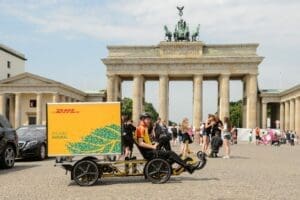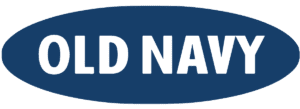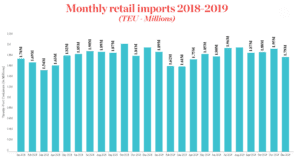 It’s hard to believe that we have reached the end again. And by that, I mean the last Logistics Viewpoints news round-up of the year. It’s been another great year bringing you the news. It’s also been another great year of learning. I’ve learned so much from reading and researching so many supply chain news topics (in fact, I have more talking points at parties than I can shake a stick at), attending supply chain conferences, and reading the articles from my colleagues and our sponsors that appear on this site. It’s been a pleasure bringing you the news this year, and I look forward to continuing to do so in the new year. We still have a couple of articles to publish next week, but for now, we’re signing off from the news as we count down to 2020.
It’s hard to believe that we have reached the end again. And by that, I mean the last Logistics Viewpoints news round-up of the year. It’s been another great year bringing you the news. It’s also been another great year of learning. I’ve learned so much from reading and researching so many supply chain news topics (in fact, I have more talking points at parties than I can shake a stick at), attending supply chain conferences, and reading the articles from my colleagues and our sponsors that appear on this site. It’s been a pleasure bringing you the news this year, and I look forward to continuing to do so in the new year. We still have a couple of articles to publish next week, but for now, we’re signing off from the news as we count down to 2020.
- Amazon, UPS and DHL are testing cargo bikes in New York City
- Walmart’s autonomous grocery deliveries head to Texas
- Self-driving semi makes first cross-country trip
- How Nordstrom uses robots and shelves inspired by ants to deliver lipstick faster
- Old Navy taps Postmates to help it make same-day deliveries of last-minute holiday gifts
- Shipt teams up with Sur La Table for same-day delivery
- Retail imports surged in November ahead of December tariffs
- Ahold Delhaize to invest $480m to upgrade its US supply chain
 Busy city streets offer no relief for last mile deliveries, especially as e-commerce growth is putting more delivery vehicles on the road. New York City is looking at alternatives to reduce traffic congestion and CO2 emissions with a new cargo bike pilot program. Dubbed the Commercial Cargo Bike Pilot Program, Amazon, UPS, and DHL have started using bikes with large containers attached to them to make deliveries. The New York City Department of Transportation said their goal is to have 100 cargo bikes in the pilot. The transportation department is requiring all delivery bikers to have identification, undergo safety training sessions, and not exceed speeds of 15 miles per hour. The test will take place in Manhattan below 60th Street, which is the area where the city plans to implement a “congestion pricing” plan starting in 2021. The congestion pricing plan will charge passenger vehicles as much as $14 and commercial trucks as much as $25 to enter during peak commuting hours.
Busy city streets offer no relief for last mile deliveries, especially as e-commerce growth is putting more delivery vehicles on the road. New York City is looking at alternatives to reduce traffic congestion and CO2 emissions with a new cargo bike pilot program. Dubbed the Commercial Cargo Bike Pilot Program, Amazon, UPS, and DHL have started using bikes with large containers attached to them to make deliveries. The New York City Department of Transportation said their goal is to have 100 cargo bikes in the pilot. The transportation department is requiring all delivery bikers to have identification, undergo safety training sessions, and not exceed speeds of 15 miles per hour. The test will take place in Manhattan below 60th Street, which is the area where the city plans to implement a “congestion pricing” plan starting in 2021. The congestion pricing plan will charge passenger vehicles as much as $14 and commercial trucks as much as $25 to enter during peak commuting hours.
 Walmart, always looking for new and innovative ways to increase deliveries, is partnering with Mountain View, CA-based autonomous vehicle company Nuro for a pilot program in Houston, TX. The pilot program will be used for grocery deliveries for a select group of Nuro customers with plans to expand to the general public in 2020. Nuro already uses its autonomous vehicles for grocery and pizza deliveries in the area. And this is not Walmart’s first entry into the autonomous vehicle market. The company has a number of programs in place, including a partnership with Gatik for deliveries between two stores in Bentonville, AR, a pilot with Udelv to introduce its second-generation autonomous delivery van, a self-driving grocery delivery plan with Ford, and a partnership with Waymo to use self-driving cars to shuttle customers to and from stores to pick up online orders.
Walmart, always looking for new and innovative ways to increase deliveries, is partnering with Mountain View, CA-based autonomous vehicle company Nuro for a pilot program in Houston, TX. The pilot program will be used for grocery deliveries for a select group of Nuro customers with plans to expand to the general public in 2020. Nuro already uses its autonomous vehicles for grocery and pizza deliveries in the area. And this is not Walmart’s first entry into the autonomous vehicle market. The company has a number of programs in place, including a partnership with Gatik for deliveries between two stores in Bentonville, AR, a pilot with Udelv to introduce its second-generation autonomous delivery van, a self-driving grocery delivery plan with Ford, and a partnership with Waymo to use self-driving cars to shuttle customers to and from stores to pick up online orders.
 Speaking of autonomous vehicles, a self-driving semi-truck made the first cross-country trip delivering a truckload of Land O’Lakes butter from California to Pennsylvania. The 2800-mile journey was powered by autonomous truck start-up Plus.ai. The journey took fewer than three days; beyond federally mandated breaks and refueling, Plus.ai’s autonomous truck was running consistently on L4 mode. The truck had a safety driver on board at all times to monitor and assume control if needed, and a safety engineer to monitor system operations. According to Plus.ai, there were zero disengagements for the autonomous system and the only time the human driver took over was for “federally mandated breaks and refueling.”
Speaking of autonomous vehicles, a self-driving semi-truck made the first cross-country trip delivering a truckload of Land O’Lakes butter from California to Pennsylvania. The 2800-mile journey was powered by autonomous truck start-up Plus.ai. The journey took fewer than three days; beyond federally mandated breaks and refueling, Plus.ai’s autonomous truck was running consistently on L4 mode. The truck had a safety driver on board at all times to monitor and assume control if needed, and a safety engineer to monitor system operations. According to Plus.ai, there were zero disengagements for the autonomous system and the only time the human driver took over was for “federally mandated breaks and refueling.”
![]() Nordstrom, in its quest to improve warehouse efficiencies, has been working with two new partners to bring more automation into its operations. The company is working with robotics supply chain company Attabotics and parcel-sorting provider Tompkins Robotics, to test a more modern facility in the San Jose area. Attabotics is a 3-D robotics provider for fulfillment centers that replaces the traditional row-and-aisle configuration seen in warehouses with a patented storage structure inspired by ant colonies, which store items vertically. Tompkins Robotics has developed a parcel-sorting solution it calls t-Sort Plus, which uses autonomous robots that travel the shortest route possible to grab boxes and deliver them to their appropriate destination. The program is focused on Nordstrom’s beauty products, as that represents one of the company’s top categories. According to Nordstrom, the combination of Attabotics’ and Tompkins Robotics’ technologies uses 90 percent less space than other alternatives and allows the company to be nimbler and stock more inventory.
Nordstrom, in its quest to improve warehouse efficiencies, has been working with two new partners to bring more automation into its operations. The company is working with robotics supply chain company Attabotics and parcel-sorting provider Tompkins Robotics, to test a more modern facility in the San Jose area. Attabotics is a 3-D robotics provider for fulfillment centers that replaces the traditional row-and-aisle configuration seen in warehouses with a patented storage structure inspired by ant colonies, which store items vertically. Tompkins Robotics has developed a parcel-sorting solution it calls t-Sort Plus, which uses autonomous robots that travel the shortest route possible to grab boxes and deliver them to their appropriate destination. The program is focused on Nordstrom’s beauty products, as that represents one of the company’s top categories. According to Nordstrom, the combination of Attabotics’ and Tompkins Robotics’ technologies uses 90 percent less space than other alternatives and allows the company to be nimbler and stock more inventory.
 Old Navy has been offering same-day buy online, pick up in store service for well over a year. However, with the busy holiday season upon us, the company is now partnering with Postmates to enable customers to have their orders delivered within a 24-hour timeframe. The service will cost customers $8.99 per delivery and will be available in the more than 4,000 US cities where Postmates operates. TO make the service more enticing, Old Navy has announced that deliveries will be free for customers from December 21 through 23. The partnership will be available through the end of January, but the companies are looking at long-term partnership opportunities as well.
Old Navy has been offering same-day buy online, pick up in store service for well over a year. However, with the busy holiday season upon us, the company is now partnering with Postmates to enable customers to have their orders delivered within a 24-hour timeframe. The service will cost customers $8.99 per delivery and will be available in the more than 4,000 US cities where Postmates operates. TO make the service more enticing, Old Navy has announced that deliveries will be free for customers from December 21 through 23. The partnership will be available through the end of January, but the companies are looking at long-term partnership opportunities as well.
 Shipt has added a new partner: Sur La Table. With the new partnership, Sur La Table customers in 62 metro areas can have cookware, dinnerware, and bakeware delivered to their house in as little as one hour. Shipt members in those areas can choose Sur La Table from the list of available stores on the app or website. SNew Shipt members can get a free two-week trial and an annual Shipt membership for just $49, instead of the regular fee of $99.hipt is partnering with Jennie Garth to introduce the new offering. Shipt and Garth also support Feeding America, the country’s largest domestic hunger-relief organization. For every dollar spent at Sur La Table via Shipt through December 24, the service will help provide one meal to Feeding America, up to 500,000 meals.
Shipt has added a new partner: Sur La Table. With the new partnership, Sur La Table customers in 62 metro areas can have cookware, dinnerware, and bakeware delivered to their house in as little as one hour. Shipt members in those areas can choose Sur La Table from the list of available stores on the app or website. SNew Shipt members can get a free two-week trial and an annual Shipt membership for just $49, instead of the regular fee of $99.hipt is partnering with Jennie Garth to introduce the new offering. Shipt and Garth also support Feeding America, the country’s largest domestic hunger-relief organization. For every dollar spent at Sur La Table via Shipt through December 24, the service will help provide one meal to Feeding America, up to 500,000 meals.
 According to the National Retail Federation (NRF), the trade war has had a significant impact on imports at major US ports. In the Global Port Tracker report released earlier this week by the National Retail Federation and Hackett Associates, volume at the nation’s major container ports bumped up significantly in November as retailers imported merchandise ahead of new tariffs set to take effect this month. President Trump announced a tentative agreement on a partial trade deal with China in October, but the measure has yet to be finalized and a new round of tariffs on consumer goods is still scheduled to take effect December 15. According to NRF Vice President for Supply Chain and Customs Policy Jonathan Gold, “at this point, holiday merchandise is already in the country, so the direct impact of new tariffs won’t be seen until the season is over.”
According to the National Retail Federation (NRF), the trade war has had a significant impact on imports at major US ports. In the Global Port Tracker report released earlier this week by the National Retail Federation and Hackett Associates, volume at the nation’s major container ports bumped up significantly in November as retailers imported merchandise ahead of new tariffs set to take effect this month. President Trump announced a tentative agreement on a partial trade deal with China in October, but the measure has yet to be finalized and a new round of tariffs on consumer goods is still scheduled to take effect December 15. According to NRF Vice President for Supply Chain and Customs Policy Jonathan Gold, “at this point, holiday merchandise is already in the country, so the direct impact of new tariffs won’t be seen until the season is over.”
 And finally, grocery retailer Ahold Delhaize USA has announced that it will invest $480 million over the next three years to expand and upgrade its supply chain on the East Coast of the US. A statement from the company claims that the three-year investment plan aims to develop the company’s US supply chain into a fully integrated, self-distribution model. According to the company, “the upgraded self-distribution US supply chain will enable its US businesses to reduce costs, improve speed to shelf, enhance relationships with vendors, and improve product availability and freshness for customers.” Ahold’s current distribution network includes 15 distribution centers which serve its grocery brands and home-delivery service Peapod.
And finally, grocery retailer Ahold Delhaize USA has announced that it will invest $480 million over the next three years to expand and upgrade its supply chain on the East Coast of the US. A statement from the company claims that the three-year investment plan aims to develop the company’s US supply chain into a fully integrated, self-distribution model. According to the company, “the upgraded self-distribution US supply chain will enable its US businesses to reduce costs, improve speed to shelf, enhance relationships with vendors, and improve product availability and freshness for customers.” Ahold’s current distribution network includes 15 distribution centers which serve its grocery brands and home-delivery service Peapod.
That’s all for this week and this year. Enjoy the weekend, the holiday season, and the song of the week, Green Day’s Good Riddance (Time of Your Life).

















